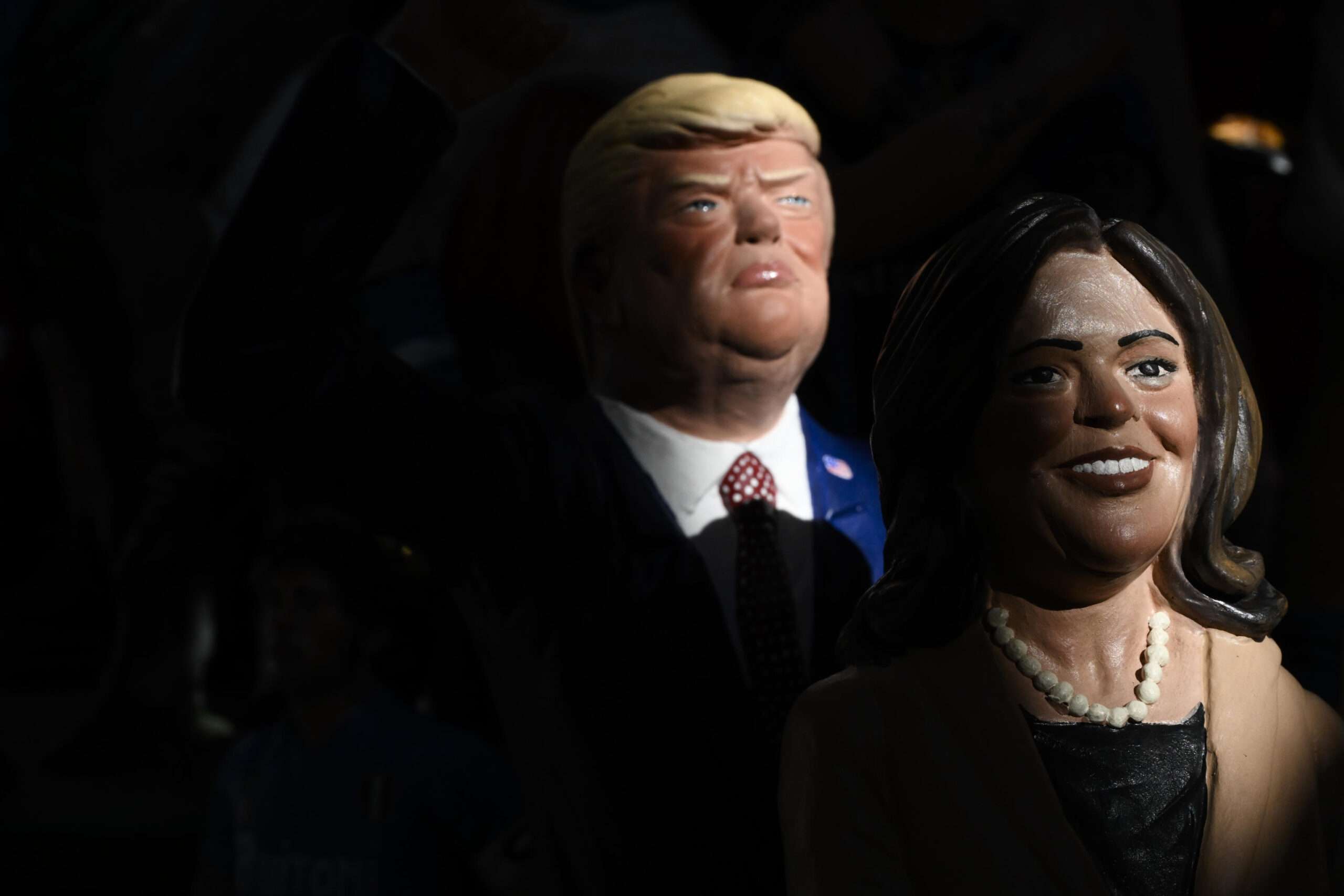A Dismal Election for Technology and Sexuality
The upcoming election is positioned to be detrimental for both sexual and technological freedoms, particularly with candidates like Donald Trump and Kamala Harris at the forefront, given their past actions and policies in these areas. Both have shown tendencies towards regulation and restrictions that could further marginalize these vital aspects of society. For libertarians, who prioritize personal freedoms, an evaluation of who might pose a greater threat to sex and tech policies is essential. Although both candidates may not have a deeply ingrained hostility toward issues of sexuality or technology, they have occasionally leveraged these issues for political gain, which raises concerns for potential future actions during their respective administrations.
Kamala Harris, while operating from a more progressive platform, has a troubling history regarding sex work. As California’s Attorney General and later as a senator, she supported laws that ultimately made life harder for sex workers, including her backing of FOSTA, which tightened regulations on online sex-work advertisements. By repressing platforms like Backpage and engendering panic over sex trafficking, Harris has perpetuated narratives that harm marginalized communities. In contrast, Trump’s approach reflects his Republican party’s broader agenda, which has historically included anti-pornography stances and exaggerated claims about sex trafficking tied to immigration. While Trump may not harbor a personal vendetta against sexuality, his affiliation with conservative factions poses a risk to sex policy. In contrast, Harris’s policy tendencies under a Democratic platform may still favor reproductive rights and contraception access over Trump’s possible appointments of judges who could advance more restrictive measures.
The examination of tech policy under both Trump and Harris reveals a more complex landscape. Both candidates symbolize parties eager for greater regulatory control over technology. With a shared desire to “break up” big tech companies and impose more stringent content regulations, the potential for harmful legislation exists regardless of who occupies the presidency. The Biden administration, under Harris, has clearly shown hostility towards large tech entities, typified by actions taken by the Federal Trade Commission led by Lina Khan. In this space, Harris’s tendency to align with anti-tech sentiments could render her platform a greater threat to industry stability compared to Trump’s less frequent interventions during his administration, even though he does have his own problematic history regarding tech regulation and an affinity for punitive measures against platforms he disapproves of.
While both candidates demonstrate a willingness to regulate technology, Harris may possess a more calculated approach. As a Californian, she operates in close proximity to Silicon Valley, where industry relationships may influence her policies. Conversely, Trump has openly pressured regulatory bodies to change Section 230, indicating a level of authority that could impose more drastic measures if re-elected. His regulatory instincts lean towards authoritarianism, which raises fears regarding free speech and internet freedom. Nevertheless, it’s crucial to understand that Democratic administrations, including that of Biden and Harris, adopt similarly vague criteria for regulating online speech, especially under the guise of combating false information or hate speech. As such, Harris may implement less overtly unconstitutional policies, potentially enabling significant restrictions on free speech that could fly under the radar of popular and regulatory scrutiny.
Despite Trump’s overtly extreme approach often resulting in significant backlash, his policies may ultimately lack the traction needed to succeed due to the potential for challenges in legal or public forums. In contrast, while Harris may not propose strictly authoritarian ideas outright, the plausibility of advancing more insidious measures raises alarms. Democrats, under Harris’s likely guidance, could succeed in pushing anti-tech and censorship policies justified as rational public health or safety measures. This nuance represents a core danger in the election that demands careful consideration from libertarians who value both sexual and technological freedoms deeply.
In addition to the electoral landscape, broader implications for the tech industry and the sexual rights sphere loom large. The continued intersection of sex, technology, and governance calls for vigilance from stakeholders in both sectors, as evolving policies threaten to upend established rights. The discourse surrounding AI innovations and digital content regulation complicates these conversations further. As tech minds like Zuckerberg explore new content categories, the regulatory environment will increasingly shape how these technologies can evolve. Amid these changes, it is crucial for advocates of sex and tech freedoms to remain engaged, pushing for a balanced approach that safeguards individual liberties while navigating the complexities of upcoming civic changes. This election may well underscore the extent to which political narratives evolve and how individual actions intersect with broader societal trends surrounding technology and sexual rights.
Share this content:












Post Comment